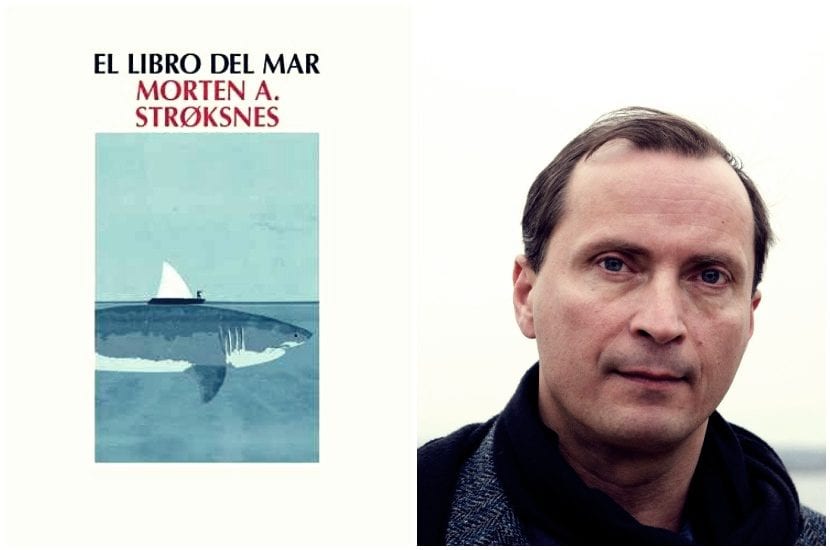
Photograph by Morten Strøksnes: (c) Bjørn Ivar Voll.
From a time to this part they come to us from the North editorial novelties that become best-selling phenomena or unexpected success among the general public. It happened last year with The wood book, by the Norwegian writer Lars Mytting. Now it's about The book of the sea, by another compatriot, Morten Strøksnes. And what is a summer without a sea or a huge shark, almost a mythological creature, that is prowling in its waters?
Published last month of June, has been compared to classics like Melville o Hemingway, exchanging huge white whales for monstrous Sharks, but evoking a struggle similar to that of The old man and the sea. Let's take a look and see what this mix of novel, essay and reflection about adventure, hunting and man's relationship with nature.
The author
He born in 1965, Morten Andreas Stroksnes is a Norwegian historian, writer and photographer. After his studies in Oslo and Cambridge, began a wide journalistic career which includes chronicles, essays, profiles, columns and reviews for major Norwegian newspapers and magazines such as the Morgenbladet. He also participates in public debates. He is the author of eight booksas well as literary reports with great reception and praise from the critics. He considers himself a travel writer.
The book of the sea
As a curiosity
The original title in Norwegian, Havboka, It is the same as in Spanish, but in English it has been translated as Shark drunk, (drunk shark), with a double meaning. On the one hand, it allows that idea of drunkenness before the adventures of the author and a friend to capture the protagonist shark. On the other hand, it is more accurate to say that it refers to the species of the animal, a boreal or Greenland shark. The size of a white one, it can live for 500 years - it is one of the longest-lived species in the world - and its meat contains a toxin that produces effects identical to those of a great drunkenness.
Synopsis
The author Morten Strøksnes and his friend Hugo Aasjord, artist and sailor, obsessed with catching a boreal shark, they decide to spend a year of their lives trying. The problem is that their equipment does not seem adequate. They go in a motorized inflatable boatThey carry some fishing rods and, as bait, the rotten meat of a cow.
It is while waiting for the shark to appear when Strøksnes reflect on the beauty of the place where they are, the Lofoten Islands. Also about the ocean in its entirety and what it can evoke. To do this, apart from showing great erudition about the subject, he does not forget to put a touch of humor. The adventure seems surreal, but Strøksnes gets us to share a few meditations that we have all had sometime on the immensity of the sea and its inhabitants.
He also expands them by rambling on the customs of fishermen, natural sciences, art, mythology, sea monsters, ships or explorations. And of course he also talks about his own feelings and emotionsas well as friendship.
What the critics said
Critics have described it as a particular essay, a mixture between fantasy and travel narrative, Norse legends, biological research and sleep. With the clearest reminiscences, above all, to the works of Herman Melville and his Moby Dick and Hemingway and The old man and the sea. But also Jules Verne's.
They also comment that, deep down, It is not the capture of the shark that stands out, but the journey between spooky but very real and vivid, for the past of this very special Norwegian region and its natural history, its untamed seas overflowing with the most diverse creatures and its people.
And it must be said that history has already captivated thousands of readers, among them, for example, is a certain Jo Nesbø.